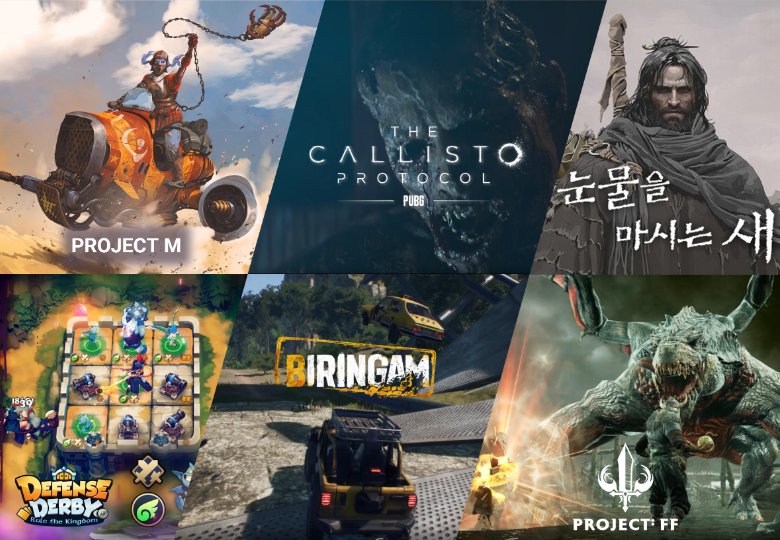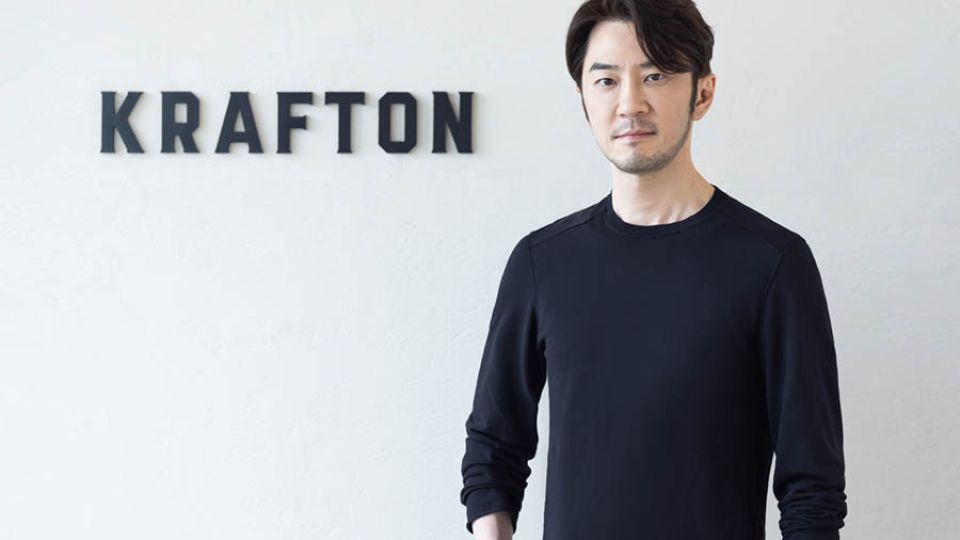March 7, 2022
SEOUL – As one of South Korea’s online game pioneers, Kim Chang-han — a computer engineer-turned-entrepreneur — had early success in his life with his creation, PUBG: Battlegrounds.
Since its debut in 2017, the popular battle royale game has sold over 75 million copies in 200 countries and also turned the small game company Krafton into a global studio generating 1.89 trillion won ($1.55 billion) of revenue a year. Kim, also known as the father of PUBG for his key role in developing the game, is now Krafton’s CEO. The company entered a new phase as the game studio went through a glamorous market debut eight months ago.
Krafton raised 24.4 trillion won in funding by listing on the nation’s main bourse Kospi in August, thanks to high liquidity and investors betting big on the burgeoning gaming industry.
But the shares recorded the biggest fall on the Kospi in January, causing jitters among investors. The CEO, however, remains unfazed, saying that the company is in a major transition into new businesses — namely the metaverse, non-fungible tokens and create-to-earn (C2E) games.
“What we are good at are setting up (virtual) worlds, designing interactions and creating fun that have been accumulated while developing games. Centered around this, we are trying to give people joy by expanding to areas beyond games. We have to choose the areas where we can maximize our skills,” Kim told The Korea Herald in an interview.
Kim underscored that Krafton’s development of C2E games is where the game maker’s focus lies.
“We believe that content creation produces the value of ‘fresh fun in a new form.’ Whereas play-to-earn (P2E) is focused on earning through content consumption, the biggest difference of C2E is that it earns through content creation,” said Kim.
P2E games, which are also known as money-making games, are banned in Korea for the possibility of promoting speculation.
Though not mentioning any specifics about the industry’s legal hurdles on P2E, Kim emphasized that C2E, not P2E, was the right path for Krafton to go.
“As creators have already proven in services such as YouTube, Roblox and Zepeto, they can create actual value that give joy and fun for many people with their self-created content.”
The CEO underlined that tokens can be used to give power to creators and accelerate C2E for them, but that these tokens are not for sale. Trading NFTs from gaming activities could easily lead to P2E.
“Blockchain guarantees the transaction and token movement replaces payment. So it is an (open application programming interface) that allows payment and transaction. This will play a crucial role in activating the creator ecosystem,” he said.
“We are looking at investing in blockchain-based technologies, such as the metaverse and NFTs that can have great expandability when combined with games, as well as content to expand touchpoints with the global audience.”
Krafton’s new investments
Sailing towards the wave of Web 3.0 featuring NFTs and the metaverse, the company announced last month that it invested 8 billion won in two digital art companies, Seoul Auction Blue and Xbyblue.
The company also joined hands with Naver Z, the operator of the country’s biggest metaverse platform Zepeto, in a move to create an upgraded version of Naver’s platform. The gaming giant also unveiled a glimpse of virtual human characteristics based on artificial intelligence through an image and a demo video.
“The ideal Web 3.0 service is an open platform where information is disclosed and anyone can freely join and leave. In the end, I think Krafton should play a role in forming an ecosystem centered around open platforms and supporting the invigoration of the surrounding communities,” Kim said.
Under the partnership with Naver, Krafton will take the lead in setting up a high-quality virtual world based on its understanding and experience with the advanced 3D creation tool Unreal Engine. It can also draw from years of experience operating Battleground, where up to 100 users can interact in real-time, he said, and this will be a game-changer among existing metaverse services.

Images of Krafton’s upcoming games (Krafton)
But a game company should prioritize making games, Kim said.
Its lineup-in-waiting later this year includes Unknown Worlds’ Project M, a turn-based strategy game set in a science-fiction world, and Striking Distance Studios’ The Callisto Protocol, a story-driven, single-player survival horror game.
Like Unknown Worlds, which it acquired in December, it is eyeing small studios with top talent, particularly in emerging markets such as India, the Middle East and Africa. It is partly because 94 percent of the game maker’s annual sales came from overseas last year.
“Having the goal of growing together with the Indian game and entertainment industries, we have made a total of seven investments worth about 100 billion won in companies specialized in web novels, eSports, game streaming and game developers so far,” Kim said.
He pointed out that some of the companies Krafton invested in grew so fast in less than a year that they drew in follow-up investments as their valuations jumped three to four times higher than before.
“From a long-term perspective, we intend to find and invest in companies with growth potential enough to be listed independently within two to three years, or consider a merger and acquisition with Krafton,” he said.

Krafton’s corporate identity (Krafton)
Restoring investors’ trust
Krafton logged a record-high annual revenue of 1.89 trillion won last year, but saw its annual operating profit dip 17.3 percent on-year to post 639.6 billion won with weak fourth-quarter earnings. The game maker’s annual net profit recorded 519.9 billion won, also down 6.5 percent from the previous year.
The stock price of Krafton, which reached as high as 580,000 won per share on Nov. 17, began to slip since and eventually stood at 282,500 as of Friday’s close.
To woo investors disappointed with falling shares, Krafton Chairman Chang Byung-gyu, as an individual, bought 35,000 shares of his company worth about 10 billion won back on four separate occasions since Feb. 24.
The company, however, is not considering temporary dividend policies or share buybacks for now, according to Kim.
“But in the long run, various policies for shareholders will be implemented in consultation with the board of directors,” the CEO said.
Born in 1974 in Seoul, Kim graduated from the Korea Advanced Institute of Science and Technology with a Ph.D. in computer science. After he went into the gaming industry as a developer, he served as the chief technology officer at gaming startups such as Ginno Games and Nextplay before joining Bluehole, which later became Krafton.


